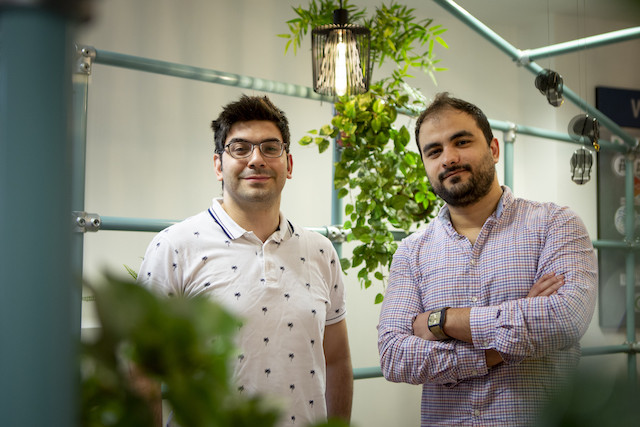Back when they started in 2009, the entrepreneurs were using dial-up connection to operate two websites from a flat in Damascus. They have not forgotten their roots, and helping other displaced Syrians take the next step in their lives is the focus of their latest business venture--an application providing trading advice and an auto-investing feature.
The entrepreneurs met in 2009 just as the Damascus Securities Exchange, the only stock exchange in Syria, had begun. They launched Syria Stocks, a trading tips and analysis website about Arab stock markets. The pair then created an online directory for all the restaurants in Damascus, listing their menus, prices and public reviews.
“In 2010, we won the Shell Petrol entrepreneurship programme prize,” Najjar explained. “We had zero knowledge of the notion of entrepreneurship or startups. We only started because we thought we could build something instead of working for other people.”
With just one million internet users in Syria at the time, part of the challenge was convincing users of the benefits of the internet. “We had 2,000 users.
They were older people and didn’t know how to use the internet.”
By the second year, the projects were starting to generate revenue. But things got messy. During a business trip to Jordan in 2012, Najjar became stuck. As the main provider for his mother, sister and disabled brother, his solution was to bring his family to Jordan.
But there, he was forced to put his entrepreneurial dreams on hold. He found work for an e-commerce firm and picked up the skills that would lead to his first social enterprise.
“I started providing consulting to Syrians who were refugees in Jordan to start a business. I noticed how many Syrian artists there were who don’t do anything,” Najjar said.
The war destroyed much of Syria’s traditional craft heritage as displaced craftspeople fled to neighbouring countries where they lacked access to the marketplaces they used before. Najjar founded Sharqi, a “social enterprise platform helping Syrian artisans export and promote their products outside of Jordan”.
Alattar was less fortunate. His mother was kidnapped and he still does not know where she is. He continued trading online and operated his application “Syrian Exchange Prices”, providing local currency services. He lived in several countries before he was fingered as an enemy of the state for contradicting the official line of the Syrian Central Bank.
“I got death threats […] a lot of articles were published without any evidence saying ‘this guy is trying to destroy everything’”. Alattar fled to Luxembourg where he applied and received international protection. Eight months later, he established a business training displaced Syrians to trade on European stock markets.
Last year, he contacted Najjar again, to start new fintech firm Yapip, providing a data-driven platform to help traders and investors find the best opportunities. Desperate to leave Jordan, Najjar accepted. He landed a visa and booked a flight to Brussels in July 2018, which he almost missed because of the numerous restrictions on Syrians travelling from Jordan.
“We met for the first time in five years. It was very emotional. We both cried,” Najjar recalls. The two launched their proof of concept on Google Play and were finalists for the TechStars accelerator. Life is good. “I feel how safe it is here because even though I have war in my country or the fourth-worst passport in the world, for the first time in years, I have the feeling I’m treated as a human without putting me in a category as a refugee or a Syrian,” Najjar said.
This article was originally published in the June 2019 edition of Delano Magazine.
